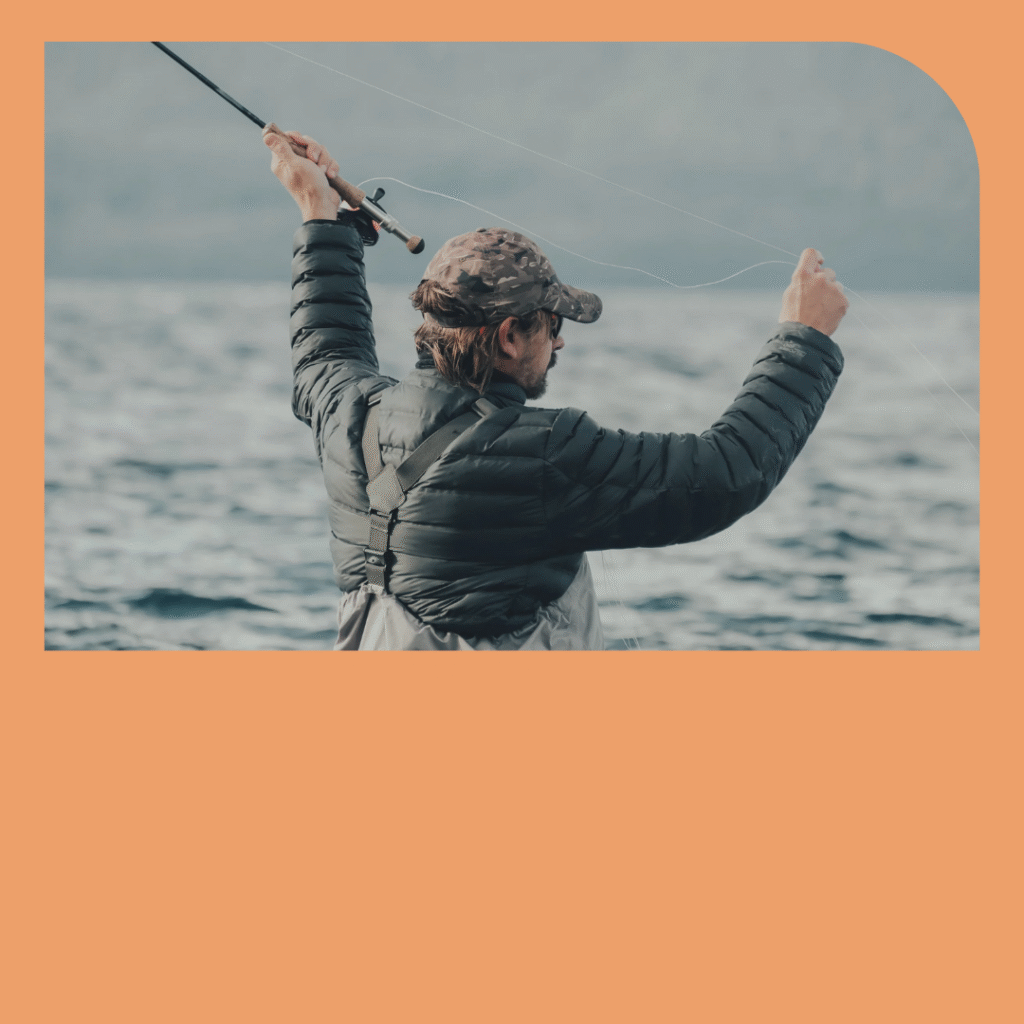Solo fishing travel offers a peaceful and rewarding escape. Whether you're a beginner or an experienced angler, planning a solo fishing expedition can bring a fresh sense of freedom and focus. Traveling alone allows you to enjoy outdoor recreation at your own pace. You choose the time, the place, and the way you fish—with no compromises.
Solo trips let you explore different fishing locations across the country or even around the world. From quiet lakes to coastal inlets, every trip becomes a chance to recharge. One of the best places for solo fishing is Alaska, USA, known for its breathtaking beauty and incredible variety of fish.
Why Choose Solo Fishing Travel?
Fishing solo provides something that group trips often can't: total freedom. You fish when and where you want. You don’t need to adjust your schedule. This independence makes every cast feel more meaningful. It’s just you, your gear, and the water.
The solitude enhances the experience. You listen more closely to nature. You become more in tune with your surroundings. Many anglers say solo fishing improves their skills because they focus more on technique and less on conversation.
For those who enjoy outdoor recreation, solo fishing is a perfect way to reset. It can also help with mental clarity and emotional health. Being alone in nature creates time to think, reflect, and enjoy simple moments.

Planning a Solo Fishing Expedition
Before heading out, take time to plan your solo fishing expedition carefully. This ensures safety and a better experience. Start with your destination. Do research on fishing locations that are solo-friendly and match your skill level.
If you're new to fishing alone, choose a familiar spot first. Once you're confident, try exploring more remote areas like Alaska, USA, where the wild landscape adds excitement to the trip.
Pack the right gear. Keep it light but effective. Make a list so you don’t forget essentials like tackle, bait, food, and safety items. Always check local fishing regulations and licensing requirements. Sites like Orvis offer excellent resources on gear and regulations.
When planning, consider the time of year. Summer fishing trips are popular because of good weather and active fish. Water conditions are often ideal, and you'll have longer daylight hours to fish.
Choosing the Best Fishing Locations
Picking the right fishing spot is crucial. Look for areas known for solo anglers and reliable catches. Some fishing locations are better suited for group travel, while others are perfect for lone fishermen.
Alaska, USA is one of the best destinations for solo fishing travel. Rivers like the Kenai and lakes around Anchorage offer beautiful views and great catches. You can fish for salmon, trout, and even halibut, depending on the region.
Other good spots include:
- Boundary Waters in Minnesota
- Everglades National Park in Florida
- Sierra Nevada lakes in California
Each location offers a unique setting and species to target. Look into travel guides or apps to learn about water conditions, access points, and nearby lodging.
Reserve Fishing Charters for Support
Even on a solo trip, you might benefit from professional guidance. If you’re fishing in unfamiliar waters, it's smart to reserve fishing charters. These trips include boats, gear, and experienced guides.
In Alaska, fishing charters help you reach remote areas safely. Charter companies often work with solo travelers and can customize trips to match your goals. You can spend a half-day or full-day out on the water with a local guide who knows where to find fish.
Booking a charter also helps you learn about local species, techniques, and weather patterns. You gain experience that you can apply to future solo trips.
Always choose a reputable provider. Brands like Orvis often partner with reliable charter services and promote ethical fishing practices.
Solo Fishing Safety Tips
Solo fishing is rewarding, but safety should come first. Follow these key solo fishing safety tips to make sure your trip goes smoothly.
Let someone know your plan. Share your location and estimated return time. Bring a GPS device or satellite communicator, especially in remote regions.
Check weather reports regularly. Weather in areas like Alaska, USA can change quickly. Bring rain gear and dress in layers.
Use safety gear such as a life vest if fishing from a boat. Carry a first-aid kit, enough food and water, and an emergency whistle.
Avoid pushing your limits. If you're tired, stop. Stay hydrated and take breaks. The goal is to enjoy the trip, not take unnecessary risks.
Angling and Outdoor Recreation Benefits
Solo fishing combines angling with the best parts of outdoor recreation. You're active, focused, and fully immersed in your environment. Unlike team sports, solo fishing is meditative. You move slowly, observe more, and appreciate every cast.
This kind of recreation boosts physical and mental health. The calm atmosphere lowers stress. The fresh air improves focus. For many, this becomes a lifelong hobby that improves overall well-being.
When you're alone on the water, you begin to notice everything: the birds, the breeze, and the way the fish behave. These quiet observations make the experience richer.
Packing Essentials for Solo Fishing Travel
Pack smart to enjoy your trip fully. Focus on quality over quantity. You want gear that performs well without being too heavy.
Here’s one bullet you can remember:
- Bring a waterproof bag with your rod, tackle, bait, multi-tool, water, snacks, first-aid kit, rain jacket, sunscreen, map, and ID.
Don’t forget fishing permits and a backup phone battery. Use waterproof containers for electronics and dry clothes. If you're planning a long hike to your spot, reduce bulk wherever possible.
Best Times to Travel: Summer Fishing Trips
Summer fishing trips are perfect for solo anglers. The season offers warm weather, active fish, and more daylight. Many fish species are easier to catch during summer due to feeding patterns.
Plan trips early or late in the day. These times often produce the best bites. In Alaska, summer is peak season for salmon runs, making it an ideal time for an expedition.
If summer is too busy for you, consider shoulder seasons like early fall or late spring. These months are less crowded and can still offer great catches.
Learning from Trusted Sources
When preparing for solo fishing travel, use trusted brands for guidance. Orvis is one of the most respected names in the angling world. Their website offers free tips, product guides, and detailed articles on recreational fishing.
They also recommend fishing locations and often feature customer stories, gear reviews, and conservation tips. Relying on expert advice improves both safety and success.
Joining online communities and reading solo fishing blogs helps too. Many anglers share useful stories and practical tips that you can apply during your trip.
My Solo Fishing Experience
Last summer, I took my first solo fishing trip to Alaska, USA. I reserved a local charter for the first two days, and the guide showed me how to fish for sockeye salmon. After that, I explored solo along smaller streams and lakes.
The freedom was incredible. I could wake up when I wanted, fish all day, and relax in the evenings. I caught fish, saw bears (from a distance), and learned so much. The peace I felt sitting by the river was unforgettable.
I used gear from Orvis, and their online tips helped me prepare. That trip made me a more confident angler and deepened my love for nature.
Conclusion
Solo fishing travel is more than a vacation. It’s a journey into nature, skill, and self-reliance. When you're planning a solo fishing expedition, take time to choose the right gear, spot, and season. Summer fishing trips are especially rewarding, with active fish and clear skies.
Whether you're fishing in your local waters or heading to Alaska, USA, solo travel helps you connect with the wild on your terms. Use resources from trusted names like Orvis and always follow solo fishing safety tips.
Take time to enjoy the calm, focus on your casting, and embrace the joy of recreational fishing. The best trips are those where you come back not only with fish—but with new skills, fresh memories, and a deeper connection to the outdoors.








